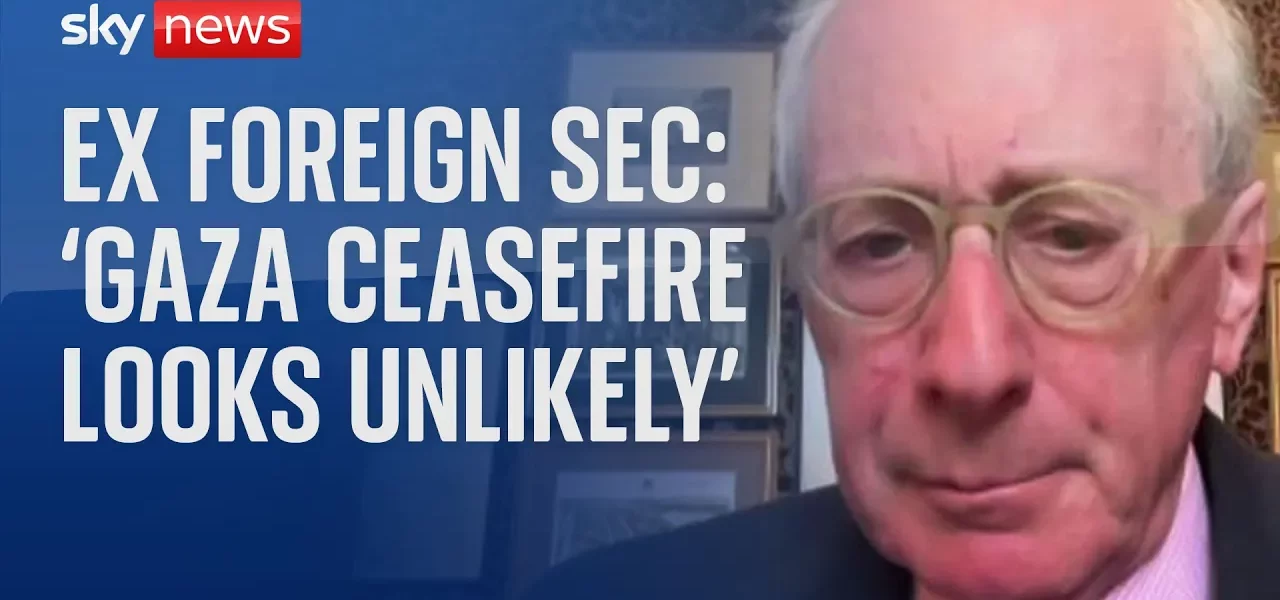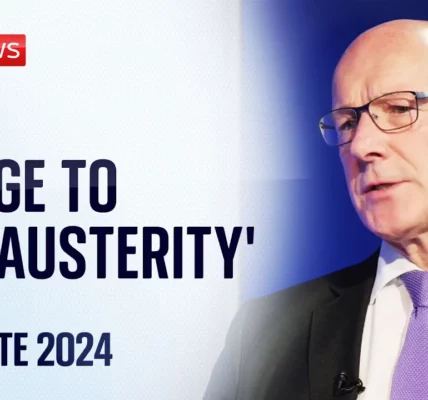Insights from Malcolm Rifkind on Ukraine, Israel, and UK Politics

In this article, we explore key insights from former Foreign Secretary Malcolm Rifkind regarding the ongoing geopolitical tensions in Ukraine and Israel, as well as the pressing issues within the UK’s prison system. This analysis delves into the implications of military strategies, diplomatic negotiations, and internal political dynamics.
Introduction
The current geopolitical landscape is marked by significant tensions, particularly between Ukraine and Russia, as well as the ongoing conflict in Gaza. Former Foreign Secretary Malcolm Rifkind provides a nuanced perspective on these issues, highlighting the complexities of military engagement, diplomatic negotiations, and the implications of domestic politics. This article aims to dissect his views and the broader context of these critical situations.
The Ukraine Conflict: Military Strategies and Implications
Malcolm Rifkind discusses the ongoing conflict in Ukraine, particularly the use of advanced weaponry and the potential impact of military strategies on the outcome of the war. The conversation focuses on several key aspects:
1. The Role of British Military Equipment
Ukraine has been utilizing a range of British military equipment effectively. The introduction of the Storm Shadow missile is seen as a pivotal moment, but Rifkind suggests that:
- The current effectiveness of Ukrainian forces is already considerable.
- The addition of one missile type may not drastically change the dynamics of the conflict.
- Ukrainians have demonstrated their capability to challenge Russian forces significantly.
2. The Psychological Warfare Against Putin
Rifkind emphasizes the psychological aspect of the conflict, noting that:
- Putin is facing unprecedented challenges, as parts of Russian territory are reportedly occupied by Ukrainian forces.
- The war has undermined Putin’s longstanding narrative of providing security to Russia.
- Ukraine’s strategy is focused on reclaiming its territory rather than permanent occupation of Russian land.
Middle East Tensions: Israel and Gaza
Shifting focus to the Middle East, Rifkind reflects on the fragile ceasefire negotiations between Israel and Hamas. He provides insights into the current situation:
1. The Stalemate in Ceasefire Talks
Although there was initial optimism regarding a ceasefire, the prospects have dimmed. Rifkind outlines the main reasons for this lack of progress:
- Hamas’s demands for a complete troop withdrawal from Gaza are not feasible for Israel.
- Netanyahu’s internal political pressures further complicate the situation.
- The humanitarian aspect remains urgent, with hostages’ lives hanging in the balance.
2. Broader Regional Implications
Rifkind warns that the tensions in Gaza could have wider implications for the Middle East, particularly regarding:
- Iran’s potential military response to perceived threats.
- The internal issues facing Iran, which may limit its foreign policy aggressiveness.
- The ongoing volatility in relations between Israel and neighboring countries.
Domestic Issues: The UK Prison System
Lastly, Rifkind discusses the current challenges facing the UK prison system, drawing from his experience as Secretary of State for Scotland:
1. Capacity and Overcrowding Challenges
The prison system in the UK is facing significant capacity issues, leading to difficult decisions regarding:
- Extended stays in police cells as a temporary measure.
- Early release options for certain prisoners.
- Ensuring that those involved in recent riots are appropriately punished.
2. The Importance of Unity in Political Leadership
Rifkind emphasizes the need for strong leadership within the Conservative Party to address these issues effectively:
- The party must prioritize internal unity to restore its reputation.
- Choosing a pragmatic leader is essential for navigating current challenges.
- A focus on domestic issues rather than ideological divisions will be crucial for future success.
Conclusion
In summary, Malcolm Rifkind’s insights illuminate the complexities of the geopolitical landscape, particularly in Ukraine and the Middle East, while also addressing vital domestic issues within the UK. As these situations evolve, it is imperative for leaders to navigate them with wisdom and strategic foresight. For those interested in understanding these dynamics further, we encourage you to explore related articles on our site regarding international relations and UK politics.
“`




